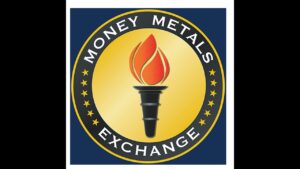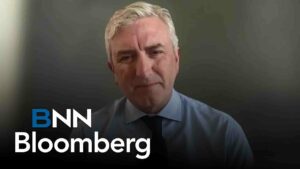Teck Resources Ltd. TECK-B-T -3.00% decrease suffered a major defeat Wednesday by failing to earn shareholder support to move forward on a restructuring that had been years in the making, increasing the chances of one of the last of the country’s big miners getting swallowed up by a foreign giant.
Shortly before the open of trading on Wednesday, and only hours before its shareholder meeting, Vancouver-based Teck announced that its planned split separating its legacy coal business from its fast-growing critical minerals business was off the table.
The failure is a setback for Canada’s ambitions to fortify its base of homegrown miners who can supply metals such as copper to feed the lower-carbon economy, as the world moves away from greenhouse gas-emitting fossil fuels.
The development is also a huge win for Glencore PLC of Switzerland, which had been campaigning to persuade Teck’s shareholders to vote against the split, and instead accept its hostile takeover offer worth US$22.5-billon.
Even if Glencore ultimately succeeded in its attempt to buy Teck, it would face stiff scrutiny from Ottawa, which would have final approval over any deal.
A timeline of the takeover bid for Teck Resources
A takeover of Teck by Glencore would be subject to a net benefit review and a national-security review by the federal government. A review would be lengthy, and involve discussions with Canada’s allies, including the United States, and look at the impact on Canada’s critical minerals supply chain.
Teck chief executive Jonathan Price reiterated on Wednesday that Teck still has no intention of engaging with Glencore and restated the company’s position that the proposal would be ruinous to shareholder value.
Teck has argued a Glencore acquisition carries significant execution risk, would degrade its environmental, social and governance (ESG) standing, and provide unwanted exposure to thermal coal, which is among the dirtiest of fossil fuels.
Teck announced in February it planned to separate into two companies, Elk Valley Resources Ltd. (EVR) holding its core metallurgical coal mines, and Teck Metals Corp. containing its critical minerals mines.
Teck received more than 50 per cent of votes cast for the split, but it failed to receive the critical two-thirds threshold.
Mr. Price on Wednesday said that in recent months the company had “listened and heard the feedback” of shareholders who opposed its convoluted split plan, and he realizes now that shareholders instead covet a clean and more straightforward separation of the two businesses, a strategy the company looks likely to pursue.
Under the failed split plan, most of the cash flow spun off from EVR would have gone to Teck Metals for about a decade. The structure muddied the green credentials of the metals business, and created a dependent child in EVR, an entity Glencore CEO Gary Nagle derided as a “zombie company.”
Magnifying the blow for Teck on Wednesday was a vacuum of information around the conduct of its biggest shareholder, giant Chinese sovereign wealth fund China Investment Corp (CIC). Only a little more than a week earlier, Mr. Price had reassured the market that its relationship with CIC was sturdy and that he was confident of getting its vote.
On Wednesday afternoon, after Teck’s annual shareholder meeting, Mr. Price was asked by The Globe and Mail whether CIC voted for, against, or abstained from the vote, but he declined to answer.
CIC is Teck’s biggest B shareholder with a 10.3-per-cent stake and carried outsized influence on the outcome.
Teck, which dates to 1913, gets its name from a gold mine that was developed in Teck Township on the shores of Kirkland Lake, Ont.
Since the late 1950s, Teck has been controlled by three generations of the Keevil family through its stranglehold on the supervoting A shares, which carry 100 votes apiece. Class B shares carry one vote each.
The shares held by the Keevil family give it the power to veto any matter that goes to a shareholder vote, including an acquisition of the company by Glencore.
Mr. Keevil, Teck’s chair emeritus and patriarch of the Keevil family, told The Globe and Mail earlier this month that he would not exercise his veto power to block an acquisition, if the board, management and the majority of B shareholders wanted it, saying he would not be “swimming against the tide.”
That said, he has been clear he is not interested in selling Teck to Glencore, calling it the “wrong deal, at the wrong time.”
Mr. Keevil, 85, is now left to regroup and wonder how the company’s plans fell apart in such a public and dramatic showing, and question why its biggest shareholder was missing in action in the closing stages of Act 1 of what might turn out to be a multiact play.
With only about 12 hours before the start of the annual meeting, a source familiar with the matter said that Mr. Keevil was in the dark about which way CIC was going to vote.
The Globe and Mail is not identifying the source as the person was not authorized to speak publicly.
The Globe reported earlier in the week that CIC had evidently missed the proxy deadline to vote, which was 48 hours before the start of the annual meeting, and Teck’s advisers were baffled as to the reason.
Teck previously conducted a multiyear review of strategic options before announcing its planned split in February. Among the options already looked at was a sale of the coal business to a third party, a public declaration to phase out its coal production over time and a clean split of coal and metals, with no continuing cash flow connection between the businesses.
Glencore has said that if the split proposal failed, it would be waiting in the wings with its US$22.5-billion takeover proposal, and that it is prepared to improve the terms.
Glencore has proposed acquiring Teck and subsequently splitting itself into one company holding its thermal coal and Teck’s metallurgical coal, and another company containing the metals mines of both companies, alongside Glencore’s energy trading business.
Teck went ahead with its annual meeting on a dreary Wednesday afternoon in the tony Terminal City Club in Vancouver, but the split was taken off the ballot. In attendance were about 70 people, including Teck’s board of directors, several members of the management team, former long-time CEO Don Lindsay and a smattering of shareholders who voted on paper ballots. All matters under consideration were approved including a sunset clause on the A shares under which Mr. Keevil and Japan’s Sumitomo Metal Mining Co. would convert their securities into B shares after six years.
Original Article: https://www.theglobeandmail.com/business/industry-news/energy-and-resources/article-teck-glencore-merger-vote/

















